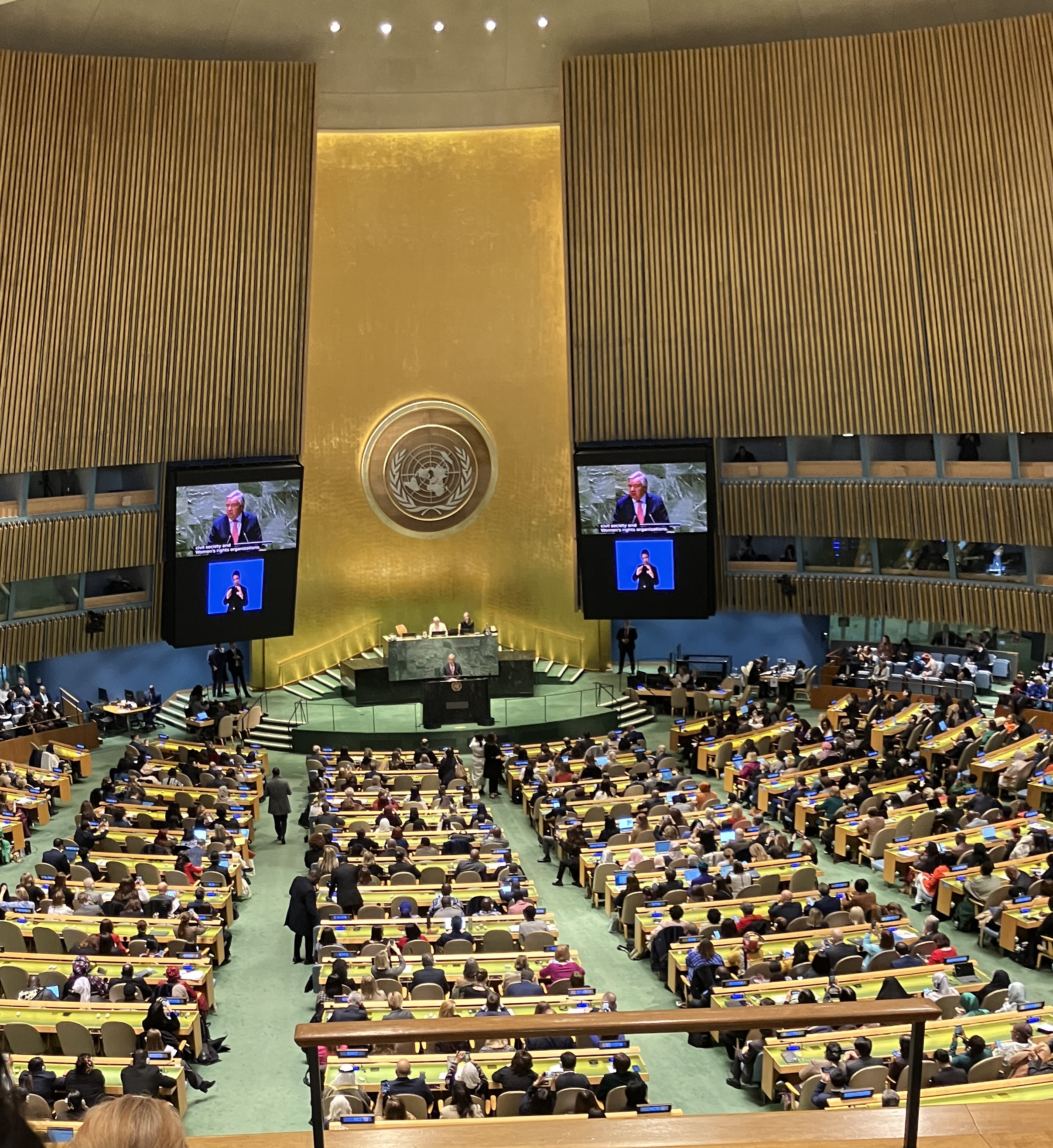
At the start of the 68th session of the Commission on the Status of Women Margaret de Vos and Lysbeth van Valkenburg were present at the start. The priority theme of this year’s CSW was “Accelerating the achievement of gender equality and the empowerment of all women and girls by addressing poverty and strengthening institutions and financing with a gender perspective”. It gave all speakers the opportunity of again stressing the fact that finance is an important issue especially for women to strengthen their position and give women possibilities to earn their own money.
The executive director at the UN, Sima Bahous started the morning with the following observations:
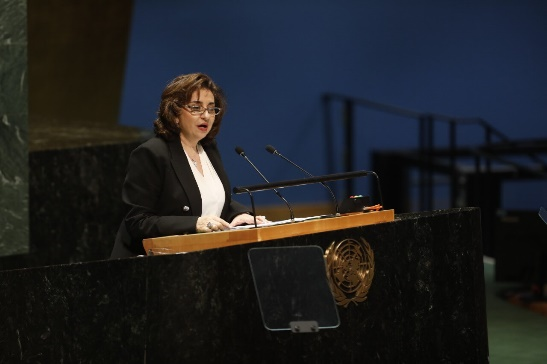
“We are here today because we, collectively, know that the backlash against gender equality is on the rise. Long-established, universal human rights and women’s rights frameworks are being challenged. National and multilateral policy discussions are marred by paralysing polarization. Hard-won gender equality gains are at risk and already being reversed. And advocates of equality face escalating hostilities, compromising their abilities to effect change. This is happening against a backdrop of cascading crises, from a planet on fire, to the wars and violence in Gaza, Sudan, Ukraine, Haiti, and many other places in the world.
We will amplify and increase awareness of impactful practices, across diverse and often difficult contexts. We will do this through reaffirming the international human rights frameworks on women’s rights and equality and through holding inclusive, open spaces for dialogue to build trust, common positions, and collaborative ways forward”.
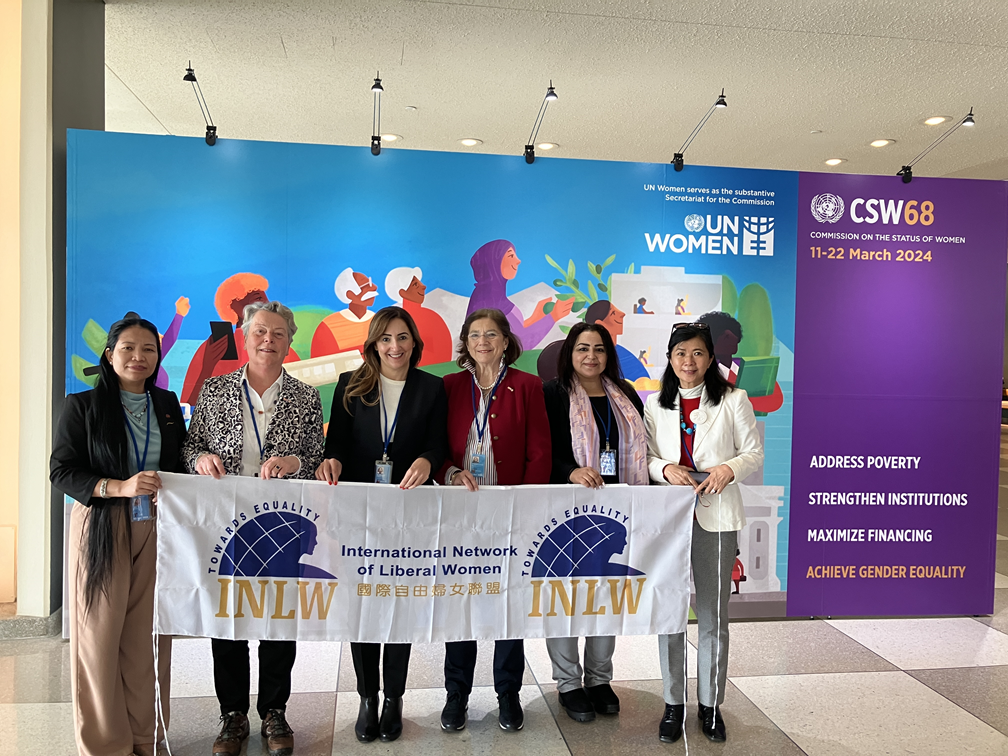
“We can transform economies, if our professed commitments to equality are matched by our budgets, as they should be. This we must do with urgency. And the evidence is as stark as ever, more than 100 million women and girls could be lifted out of poverty if governments prioritized education, healthcare, fair and equal wages, and expanded social benefits”.
“Closing gender gaps in employment could boost Gross Domestic Product per capita by 20 per cent across all regions. The return on investment in gender equality is a guaranteed win for any society and economy”.
“Across the world, poverty continues to have a woman’s face, with women experiencing higher rates of poverty than men. Both poverty and women’s financial exclusion are fueled by discriminatory gender norms which are entrenched in our economic, political, and social systems.
Women spend nearly three hours more per day than men performing unpaid care and domestic work. This work forms the backbone of our homes, our communities, and our societies. It keeps economies running, enables growth, drives progress and development.
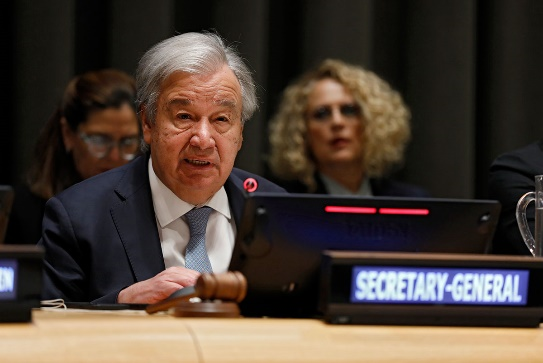
This work can be properly recognized and compensated, to the mutual benefit of women and economies, if we choose to do so. We cannot cling to excuses that this is too difficult, too expensive, too transgressive of tradition, or too far down our list of priorities. And we cannot in good conscience deny women and girls, in all their diversity, the equality that is their right”.
We were impressed by her words and commitment. It was followed by the welcoming speech of Secretary-General, António Guterres.
Guterres started with an overview of the difficulties that are now worldwide for many people as he said: “We know that we are meeting in troubled times – for the world and particularly for women and girls. The Sustainable Development Goals are off track – including Goal five: gender equality. At our current rate, 340 million women and girls will still be living in extreme poverty by 2030. We cannot allow this to happen. We face a climate crisis, a cost-of-living crisis, and a debt crisis in many countries. These are hitting women and girls hardest – pushing many into further poverty. On top of this, some countries are seeing decades of progress on gender equality reversed and repealed. Around the world, women’s rights are under attack, civic space is being squeezed, and women’s rights defenders face violent threats for daring to speak up for justice”.
“Dear Friends, Gender equality is a question of power. And I see two worrying trends in power relations.
First, the patriarchy is fighting a strong rearguard action. After decades of progress, women’s rights are being undermined and reversed. Populists and demagogues are attacking women’s freedoms and proclaiming so-called “traditional” values. But traditions like the oppression of women and girls should stay where they belong – in the past.
The women of my generation did not win the fight for their rights, only to see their daughters and granddaughters fight the same battles. I salute the people, governments and movements that are standing up to defend the rights of women and girls, through legal and constitutional action.
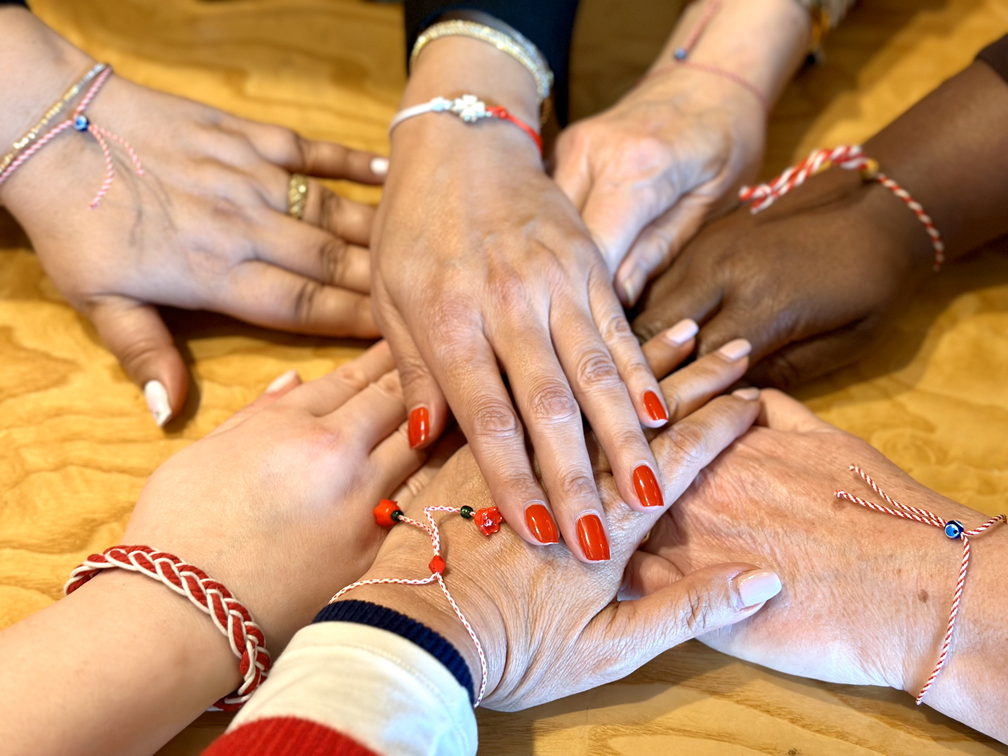
And we have opportunities ahead to advance progress.
“Together, we must make the case for advancing gender equality, realizing women’s rights, and increasing women’s representation and participation at all political levels. And we must push governments and the private sector to put their money where their mouth is, by funding equal rights and opportunities for women and girls. We must be clear about the benefits: economic prosperity; social cohesion; greater investment in health and education; and more durable peace processes.
The evidence is clear: women’s full participation makes peacebuilding more effective.
We must call for policies, targets and investments to make that a reality. We must also drive action to end violence, combat cultural norms, secure women’s full participation and leadership in all areas of public life, and protect women’s rights and their defenders”.
To address women’s poverty, we must put money into education, training, social protection, care policies, ending violence against women, and much more. We must make that case to governments, the private sector and everywhere funding decisions are taken. But we must also push for changes at the global level, to make far more finance available. We must deal with these immediate challenges”.
It was followed by some remarks by the President of the General Assembly, Mr. Dennis Francis:
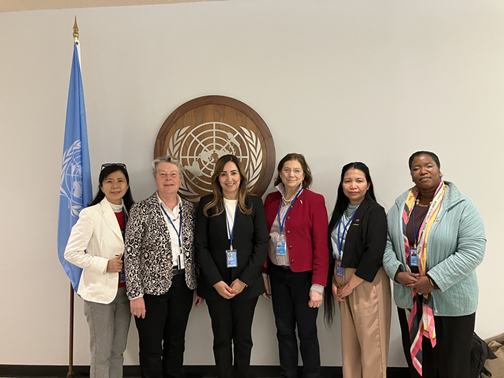
“This year’s priority theme – which highlights the crucial link between eradicating poverty and the achievement of gender equality through financing with a gender perspective and the strengthening of institutions – is extremely important, as it underlines the urgency of the need to intensify our efforts.
Despite being halfway through the 2030 Agenda, regrettably we are woefully lagging in our efforts to achieve the Sustainable Development Goals, particularly SDG1, the goal of which is to eradicate extreme poverty”.
“Currently, 1 in every 10 women lives in extreme poverty –
If we continue on a business-as-usual path, over 340 million women and girls will still languish in extreme poverty by 2030”.
In this regard, we must draw our inspiration from the exemplary women – who overcame significant barriers and obstacles through their resilience, determination, ingenuity, and grit.
Women such as Azhar Riyati, a Jordanian mother of six, whose first job outside the home was at the UN-Women’s Oasis Centre program – a lifeline for over 30,000 primarily Syrian refugees and vulnerable Jordanian women and their families. Through this program, Azhar acquired tailoring skills, which she now uses to earn an income.
And Evghenia from Ukraine, a former art-school teacher who fled to Moldova following Russia’s full-scale invasion. In Moldova, she joined a community of over a hundred thousand Ukrainian refugees, predominantly women and girls, and established her own art business. She honed her entrepreneurial abilities through the SheLeads Project, which is active in six regions of Moldova and offers 10-day courses in business and entrepreneurial skills, facilitated by UN-Women and its partners. In addition to her business, Evghenia also volunteers as a teacher in arts and crafts to children in refugee camps.
Reflecting on the experiences of these and many other remarkable women adds a humanistic dimension to the often-abstract data and narratives.
Inspired and motivated by their resilience, we are reminded of our obligation to support the millions of women and girls worldwide – who seek and deserve the same rights and opportunities as men and boys to reach their full potential”.
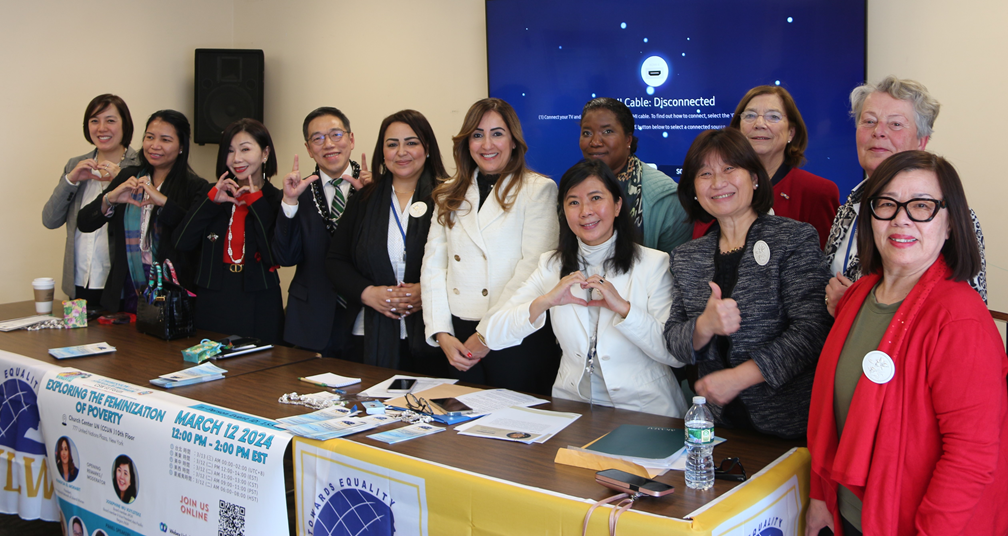
What was clear during all the speeches is the importance of the possibility to have a bank account. Some of the women told us that they couldn’t write but they could count money. So after much talking they got their bank account and that enabled them to start their own business, it was an example from a women from India. In the end these women started investing some of their money and that also made their position better. It gave a new perspective of the importance of being able to write, that is not always necessary in order to start your own business, we learned.
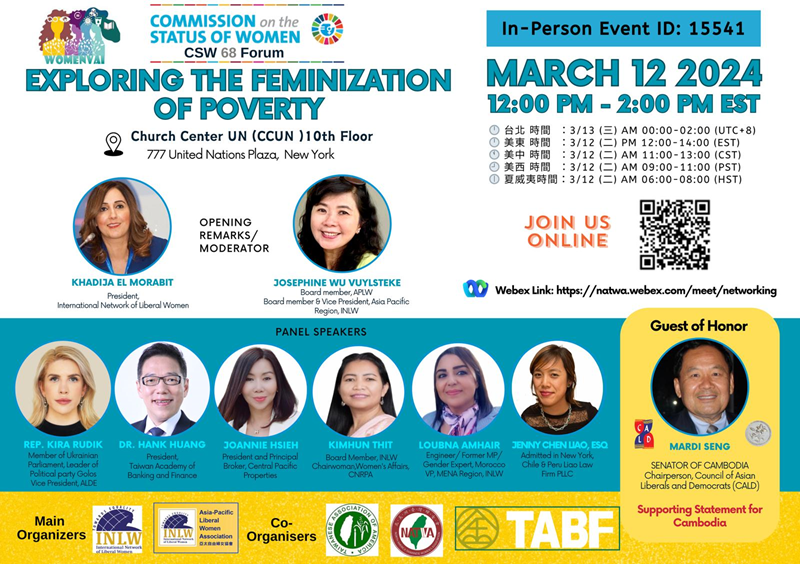
During the congress INLW together with APLW organized a parallel event with the theme:
“Unveiling the Layers: Exploring the Feminization of Poverty”. The proposed panel discussion aims to delve into the intricate issue of the “Feminization of Poverty,” shedding light on the multifaceted challenges that disproportionately affect women in the realm of economic deprivation”. There were several speakers and the event was organised with Khadija El Morabit, our new President, as chair together with Josephine Wu Vuylsteke, board member for SEA and organiser of the event.
A separate report will be made of this event.
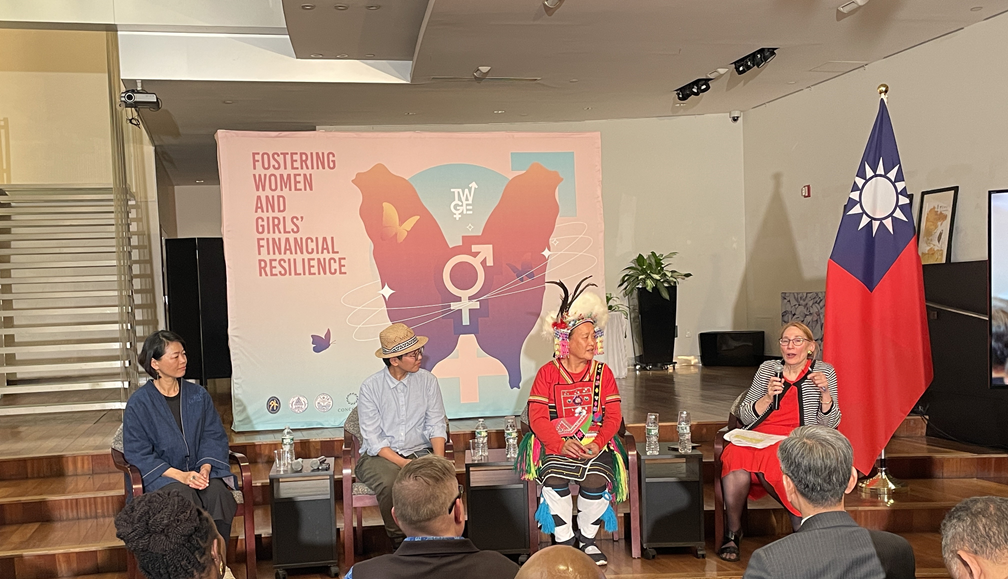
The board members who were present during the first week also met for a General Meeting and discussed the future plans of INLW. We welcomed new members and some new board members. Soknin Chhoeun, member of the Cambodia National Rescue Party Youth will join our board and become responsible for our social media. Nin as she is called by us, lives in the USA. We had a lovely event at the Taiwan office where we saw several small entrepreneurs from Taiwan showing us what they we making and how to get doing with a small business.
The Dutch members also attended the event organized by the Dutch embassy with the Dutch minister of education. The Dutch Minister Dijkgraaf (OCW) emphasized in his speech the importance of both men and boys in the process of more women actively participating.
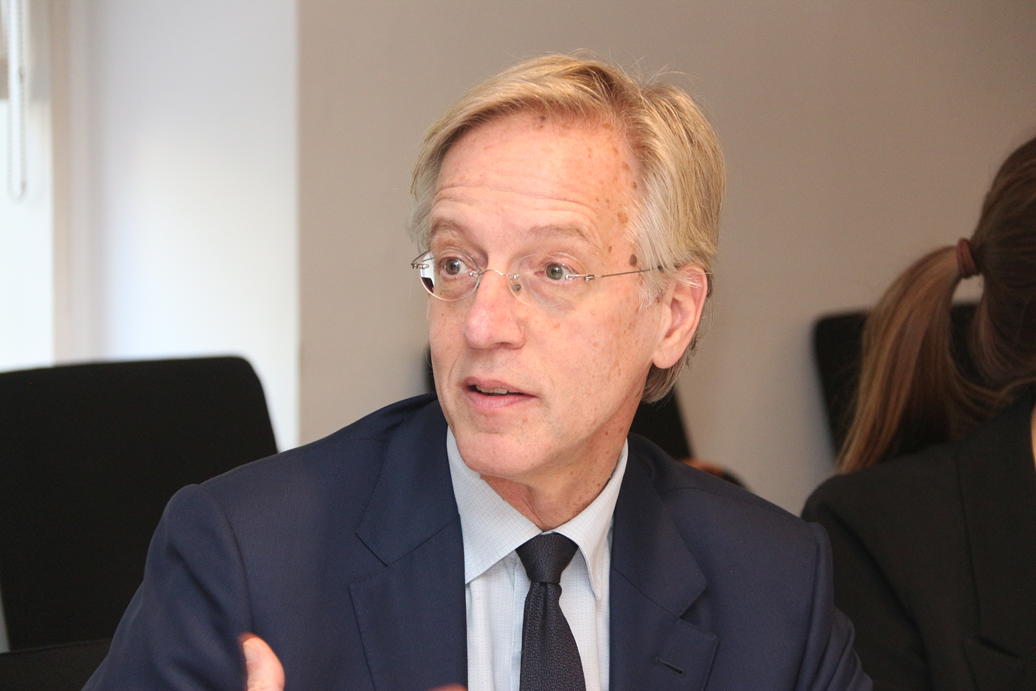
As he said: “Nobody can emancipate themselves. This is the responsibility of the society as a whole. As a man, I see myself as an ally and a member of a society that reaps the benefits of gender equality. We call upon boys and men to actively contribute to progressing gender equality. It is increasingly noted in the Netherlands that girls consistently outperform boys at all levels of education, from primary to higher education.
However, upon entering the labor market, women experience unequal opportunities and outcomes. Even today, a significant gender pay gap continues to exist and women are often burdened with more unpaid care tasks. Moreover, many women and girls experience gender-based violence, online and offline. This makes schools, workplaces and homes unsafe environments for them, hindering their active public participation. That’s why the Netherlands has enacted a comprehensive national strategy to combat sexual harassment and sexual violence”.
UN Under-Secretary-General Sima Bahous closed the 68th session of the Commission on the Status of Women at the UN headquarters, 27 March 2024 with the following statement: “You adopted robust Agreed Conclusions, a blueprint that envisages a world with greater financial inclusion, increased spending on social protection, increased stability, equal opportunities, and great hope, rights, and freedoms for women and girls everywhere. A world that will no longer accept that one in ten women lives in poverty. A world that will accelerate the investment in women and girls and that urgently pursues the realization of the fundamental rights of all women and girls to live in peace and prosperity everywhere.
I hope that you will use the Agreed Conclusions and that you will be bold and ambitious in advancing them, as we head to the 30th anniversary of the adoption of the Beijing Declaration and Platform of action. I thank you all for your dedication and determination to bring this CSW68 to a successful close.
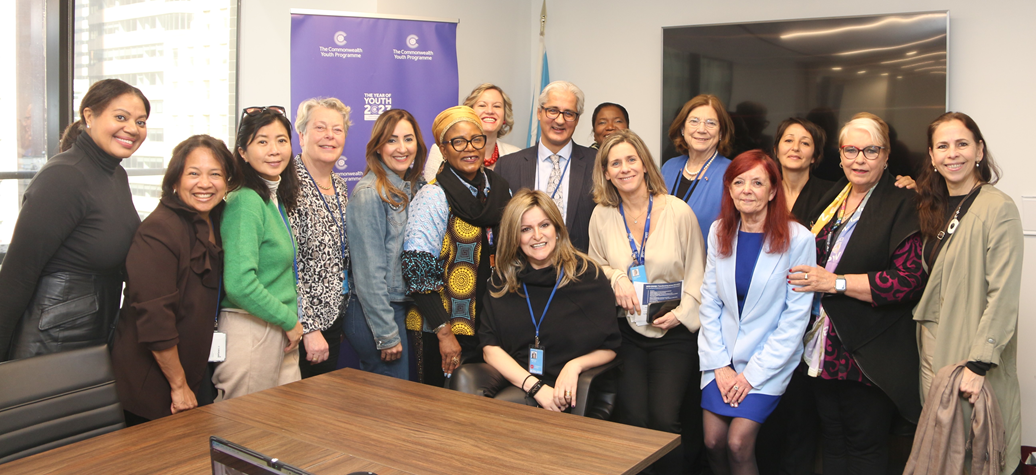
The scale of our ambitions, your ambitions for Beijing plus 30, must match the scale of our and your responsibility to achieve equality for every woman and girl, in all their diversity, not in 300 years, not in 100 years, not in 50 years, but urgently—now. There is much work to be done and much reward in doing I”.
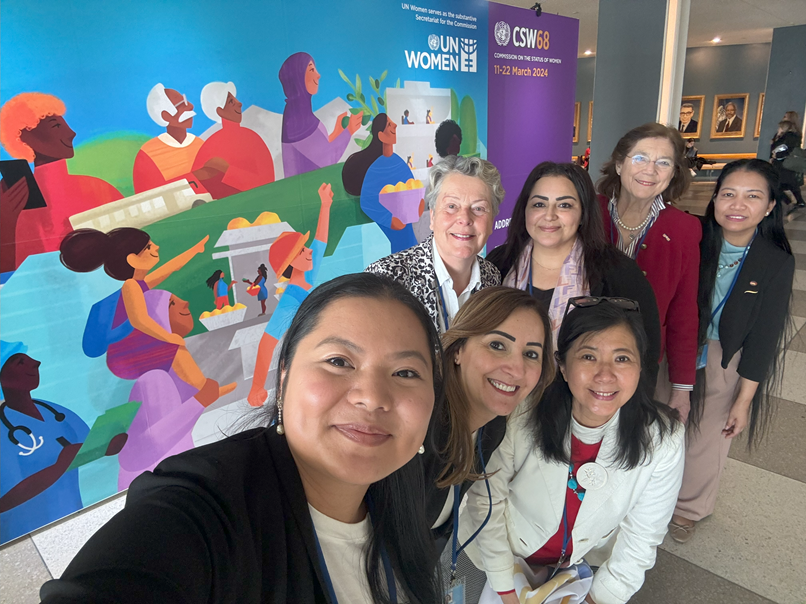
As Board members of INLW we hope to join the congress again next year and hopefully we will be able to have a parallel event again. It will be an important congress after 30 years of the Beijing declaration and we are looking forward to meeting some of our members next year in March 2025 in New York.
The INLW Board
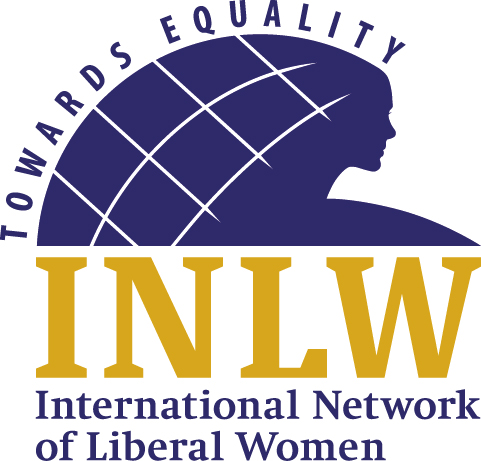
 Visit our Facebook page
Visit our Facebook page